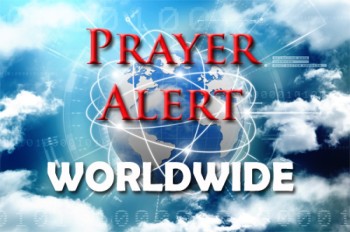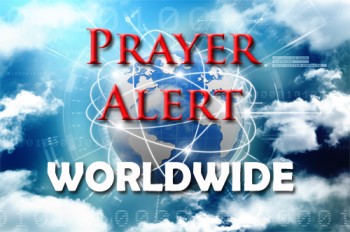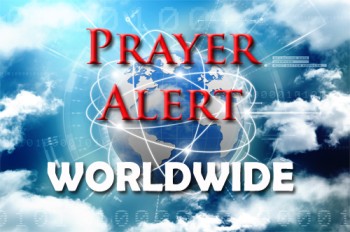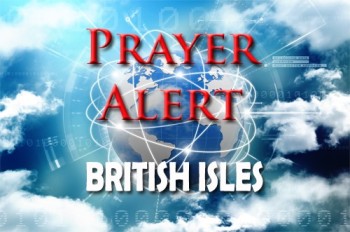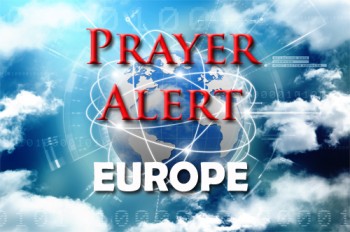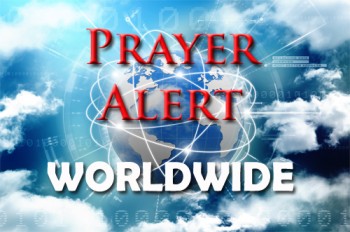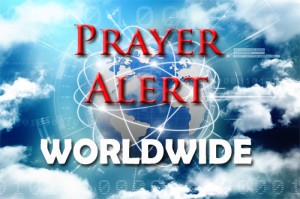Displaying items by tag: catastrophe
South Africa / Mozambique / Zimbabwe: 100+ dead after severe flooding
A national disaster has been declared in South Africa after weeks of torrential rain and severe flooding killed at least thirty people in the country’s north and caused widespread destruction. In Limpopo and Mpumalanga, the worst-hit provinces, homes, roads, and bridges have been washed away, leaving many families displaced. Heavy rains have also affected other provinces, while neighbouring Mozambique and Zimbabwe also suffered deadly floods, bringing the regional death toll to more than a hundred In Limpopo alone, damage is estimated at around £180 million. Rescue teams are still searching for missing people, including a five-year-old child believed to have been swept away when his home flooded. Hundreds of tourists and staff were evacuated from Kruger National Park during the crisis, highlighting the scale of disruption. As recovery efforts continue, communities face deep loss and an uncertain road ahead.
Myanmar: army cuts off aid to cyclone survivors
Millions who survived Myanmar's strongest cyclones are struggling to rebuild their lives. Aid trickled in until 8 June, when Myanmar's army rulers banned transport for aid groups operating in the area, making it impossible for them to deliver aid. ‘The move has turned an extreme weather event into a man-made catastrophe.’ said Human Rights Watch. Cyclone Mocha hit in May, killing hundreds. Families are reeling from dwindling aid a month after their homes were destroyed. ‘There isn't enough water or food and finding them has become much harder with the monsoon under way’, says Aye Phyu. ‘It's been raining all week. We struggle every day. The children are studying in a school with no roof. When the storm hit all the houses collapsed. There is nowhere to stay.’ Only a fraction of homes have been repaired after the storm destroyed over 2,000 villages and 280,000 homes in Rakhine state, where 78% live below the poverty line.
Ethiopia: prayer needs
Ethiopians have a catastrophic hunger crisis after four failed harvest seasons due to drought. There are dire predictions for the autumn harvest. 91% of people in southern Ethiopia live in rural areas, depending on livestock and agriculture to survive – the backbone of Ethiopia’s economy. All grazing lands and water sources have dried out. Livestock and crops have perished. There are severe food shortages. People travel for hours searching for water. This responsibility falls to women and girls, putting them at risk on dangerous routes. Girls are also missing school. Pray for agencies to provide adequate nourishing food and clean water where it is needed. Pray for people to feel God’s love and comfort surrounding them. Pray that there will be no long-term side effects or medical conditions due to hunger. Ask God to bring the rainfall that is needed; may this lead to abundant harvests and water sources springing up again closer to communities.
PM: Russian attack is catastrophe
Russia's invasion of Ukraine is a ‘catastrophe for our continent’, said Boris Johnson. He chaired an emergency Cobra meeting on 24 February and gave a televised statement after Russian forces launched an assault on Ukraine, crossing its borders and bombing military targets near big cities. He outlined new sanctions against Russia in the Commons and said on Twitter that he would also speak to his fellow G7 leaders. He called for an urgent meeting of all NATO leaders as soon as possible. In a phone call with Ukrainian president Volodymyr Zelensky, Mr Johnson vowed the West ‘would not stand by as Putin waged his campaign against the Ukrainian people’ and tweeted earlier, ‘Putin has chosen a path of bloodshed and destruction by launching this unprovoked attack on Ukraine.’ Foreign secretary Liz Truss has demanded that the Russian ambassador explain Russia's ‘illegal, unprovoked invasion of Ukraine’.
Western Europe: deadly floods a ‘catastrophe’
Record rainfall in parts of western Europe has caused major rivers to burst their banks In Germany; at least 33 are dead and dozens missing after record rain left homes and cars washed away. The Rhineland-Palatinate state chief described the flooding as a ‘catastrophe’. At least six have died in Belgium. Liège city urged all residents to leave. The Netherlands is badly hit, with more deaths and many houses damaged in the southern province of Limburg. A number of care homes had to be evacuated. More rain is forecast for these areas.
Mauritius: fears of an ecological catastrophe
A Japanese ship ran aground on a reef off Mauritius two weeks ago and has been leaking oil into the Indian Ocean. Although the oil spill has stopped, the prime minister said the nation must still prepare for ‘a worst-case scenario’ as at some point the ship will fall apart. The amount of spillage is relatively low compared to global spills in the past, but the damage it will do is huge and long-lasting; it took place near two environmentally protected marine ecosystems and a marine park reserve wetland of international importance. Conservationists are finding dead fish and seabirds covered in oil, despite a massive local clean-up operation. Pressure is mounting on the government to explain why more was not done in the two weeks since the vessel ran aground: see
Guatemala: volcano casualties
There are over 75 people dead, 200 still missing and 3,319 in shelters, many of them with dead or missing loved ones, unable to return to homes and land destroyed by Guatemala’s most active volcano. Firefighters said the chance of finding anyone alive was now practically non-existent. The thick grey ash covering the region has been hardened by rainfall, making it even more difficult to dig through the piles of rocks and debris. Pray for the exhausted rescue workers still searching for survivors. Pray for those who have lost loved ones. Pray for the rural communities who have lost everything - land, livestock and livelihood - in a once-fertile collection of canyons, hillsides and farms now reduced to a moonscape of ash and debris. ‘In a matter of three or four minutes the village disappeared as a sea of muck came crashing into homes, inundating people, pets and wildlife’, said one survivor.
